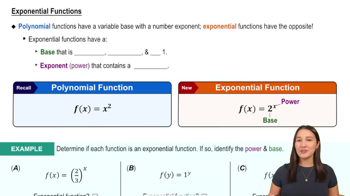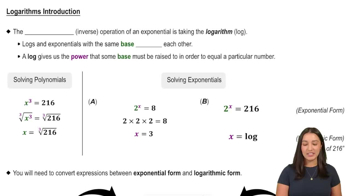Finding all inverses Find all the inverses associated with the following functions, and state their domains.
ƒ(x) = (x + 1)³
 Verified step by step guidance
Verified step by step guidance Verified video answer for a similar problem:
Verified video answer for a similar problem:



 4:46m
4:46mMaster Solving Exponential Equations Using Like Bases with a bite sized video explanation from Patrick
Start learning